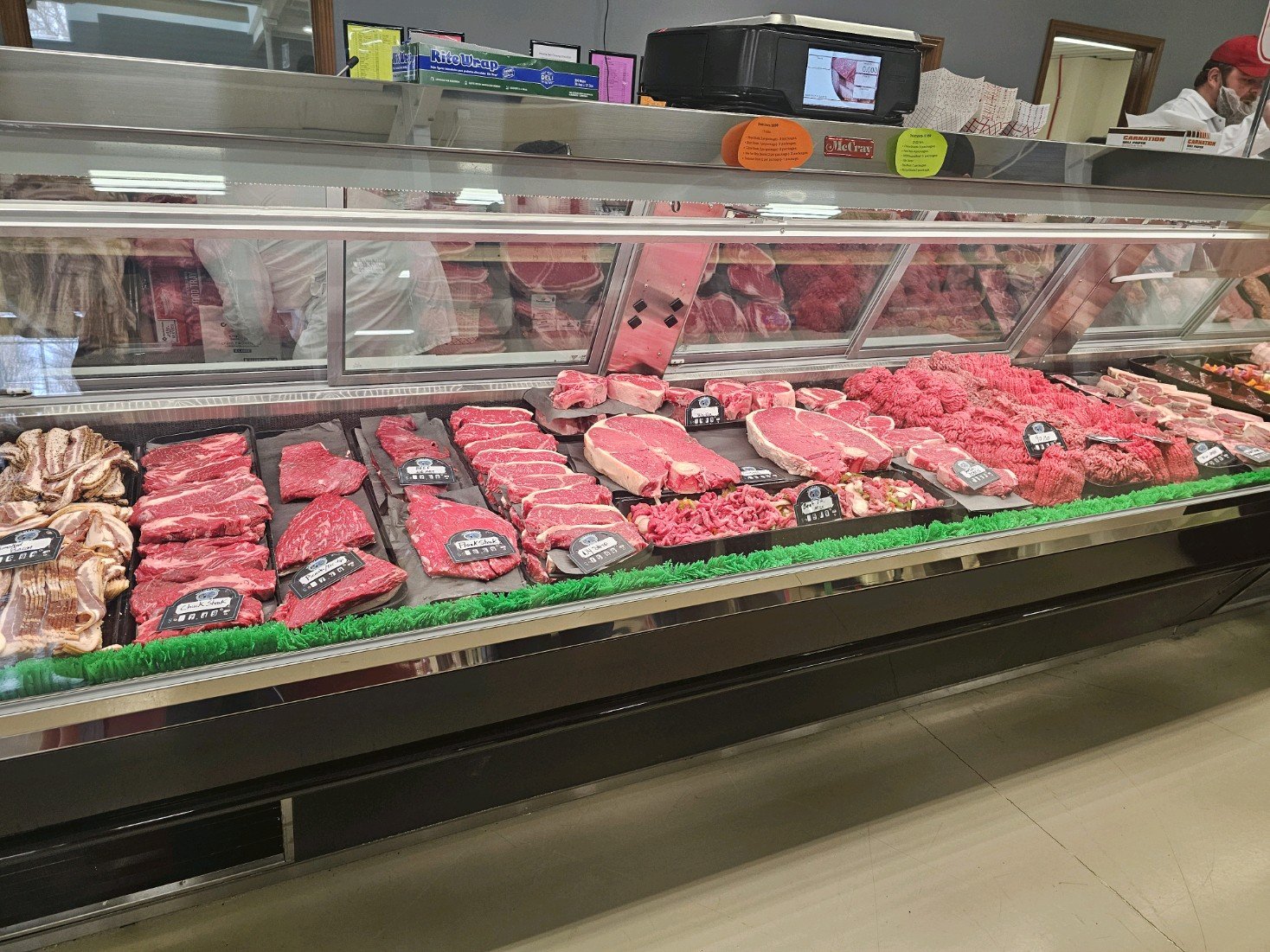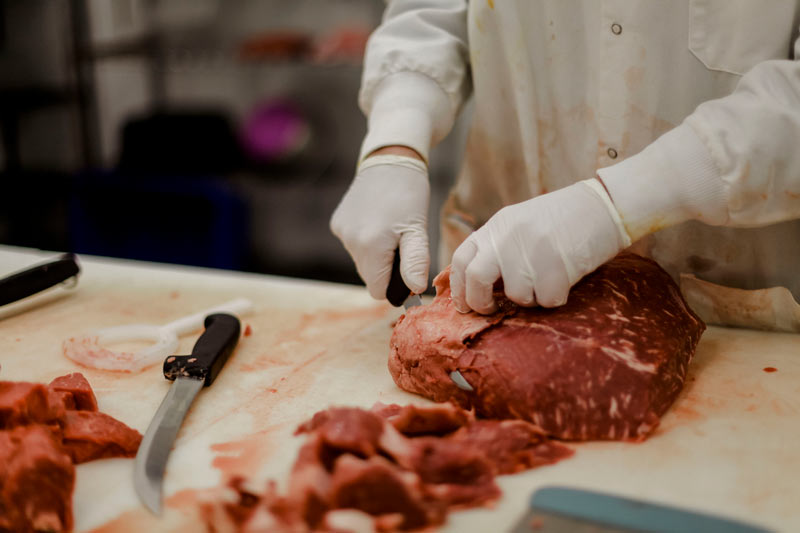Bagley Meat Market Edwardsville IL – A Tradition of Serving the Best Meats to Locals
Bagley Meat Market Edwardsville IL – A Tradition of Serving the Best Meats to Locals
Blog Article
Why Shopping at a Regional Meat Market Guarantees Fresh, High-Quality Cuts
Shopping at a regional meat market supplies distinct benefits that often go unnoticed by customers accustomed to larger retail chains. These markets offer straight access to fresh, premium cuts, an outcome of minimized transportation time from ranch to counter. This not only boosts taste but likewise sustains local farmers, fostering neighborhood partnerships and sustainable practices. Strenuous quality control measures guarantee that each purchase satisfies high criteria of safety and security and quality. Yet, the implications of choosing regional prolong beyond instant advantages, triggering a more detailed exam of what this selection truly means for both consumers and the local economy.
Advantages of Regional Sourcing
In the realm of food procurement, the advantages of local sourcing stand apart plainly. By acquiring meat from regional markets, consumers obtain straight access to items that are typically fresher and much more flavorful than those located in larger, business grocery stores. Local sourcing lowers the time and range food takes a trip from farm to table, which not just enhances preference but additionally maintains dietary worth.

In addition, neighborhood sourcing often offers transparency concerning the origins of the meat. Consumers can ask regarding the farming methods utilized, pet welfare requirements, and whether the meat is organic or grass-fed. This info equips consumers to make educated choices straightened with their worths.
Top Quality Control Specifications
Regional meat markets frequently comply with strenuous top quality control requirements that guarantee the products supplied satisfy high safety and quality criteria. These standards typically incorporate different stages of the meat manufacturing process, from sourcing to handling and storage space.
First, regional markets frequently develop strict supplier standards, guaranteeing that just credible farms and manufacturers are used - bagley meat market edwardsville il. This lowers the probability of contamination and promotes greater pet welfare criteria. Furthermore, several regional meat markets implement routine inspections to confirm that the meat is refined under sanitary problems, even more decreasing health dangers
Temperature control is one more critical element of quality control. Regional meat markets regularly keep track of refrigeration systems to keep optimal storage space temperature levels, guaranteeing that meat stays fresh and secure for intake. Moreover, the application of traceability systems permits markets to track the beginning of their products, offering openness and liability.
Lastly, personnel at regional meat markets are usually trained to recognize indications of wasting and recognize correct handling strategies. This commitment to quality control not only raises the general requirement of the meat however likewise cultivates customer trust fund, making local meat markets a reputable resource for high-grade cuts.
Supporting Local Farmers
Supporting local farmers is essential for fostering a sustainable food system and enhancing community resilience. When customers pick to patronize neighborhood meat markets, they straight add to the source of incomes of farmers in their area. This not only supports the regional economy but also reinforces the agricultural field, ensuring that it continues to be vivid and feasible.


In addition, sustaining local farmers fosters a sense of community and connection between producers and consumers. It motivates transparency in food sourcing and imparts trust fund, as clients can create partnerships with the people that raise their food. This straight link ultimately results in a more engaged and educated public, which is crucial for supporting for sustainable farming methods in the future.
Sustainable Practices
Sustainable practices in meat markets play a vital function in promoting environmental stewardship and guaranteeing animal welfare. Neighborhood meat markets usually focus on sourcing their items from farms that execute ethical and sustainable farming techniques. These practices include rotational grazing, which aids keep soil health and reduces carbon exhausts, along with lessening the use of antibiotics and hormonal agents in animals.
Additionally, local meat markets typically stress transparency in their supply chains. Customers are supplied with info regarding the beginning of their meat, allowing them to make enlightened options that align with their worths. By supporting neighborhood farmers who exercise sustainable methods, customers contribute to the conservation of biodiversity and the reduction of transport emissions connected with long-distance meat distribution.
In addition, numerous neighborhood meat markets participate in waste decrease techniques, such as making use of every part of the pet and promoting off-cuts that may or else go unsold. By promoting an extra sustainable strategy to meat consumption, these markets not just provide top notch products however additionally contribute favorably to the setting and animal well-being. Basically, buying at a neighborhood meat market lines up customers with a broader motion in the direction of moral and responsible food sourcing.
Customized Client Service
Shopping at a meat market commonly encompasses greater than simply the items offered; it is also regarding the experience and the partnerships constructed here between clients and personnel. Individualized client service is a hallmark of regional meat markets, establishing them in addition to bigger grocery chains. Well-informed personnel make the effort to recognize specific consumer choices, ensuring that each go to is tailored to certain requirements.
Customers gain from professional guidance on cuts, cooking techniques, and preparation suggestions, promoting a sense of count on and loyalty. This customized interaction allows consumers to ask concerns and seek suggestions, leading to informed acquiring decisions. Personnel often bear in mind normal consumers and their choices, producing a welcoming atmosphere that grows area connections.
Furthermore, customized service includes unique requests, such as custom cuts or specific prep work techniques, which larger retailers might not fit. This level of focus strengthens the commitment of neighborhood meat markets to top quality and client complete satisfaction.
Basically, individualized customer care not just improves the shopping experience yet also ensures that clients leave with the very best products suited to their cooking needs, making every browse through a satisfying one.
Conclusion
Supporting regional farmers cultivates community relationships and enhances the neighborhood economic situation, while sustainable methods contribute to ecological stewardship. In addition, personalized customer service improves the purchasing experience, making neighborhood meat markets a preferred choice for consumers seeking both high quality and honest factors to consider in their food sourcing.
The ramifications of picking neighborhood expand past prompt advantages, prompting a closer examination of what this choice really implies for both consumers and the regional economic climate.
Sustaining regional meat markets likewise contributes to the regional economy. Regional meat markets frequently keep track of refrigeration systems to maintain optimal storage space temperature levels, making certain that meat continues to be secure and fresh for intake.Regional farmers are typically a lot more attuned to the particular needs of useful source their communities, expanding plants and increasing animals that line up with local tastes and choices. Supporting local farmers fosters click to find out more area connections and enhances the local economic situation, while lasting methods contribute to ecological stewardship.
Report this page